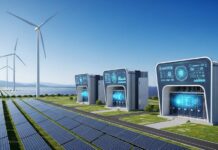Olaf Scholz, the chancellor of Germany, suggested on 3rd August that extending the lifespan of the country’s three surviving nuclear reactors through the end of the year “might make sense,” though he did not fully endorse the notion.
As concerns about the effects of a significantly reduced supply of Russian gas grow, opposition members and the pro-business Free Democrats, the smallest party in Scholz’s coalition government, have become more vocal in favour of reconsidering the long-standing decision to shut down Germany’s final reactors in December.
For Scholz’s Social Democrats and especially for the Greens, the third party in the cabinet and environmentalists, the thought of an extension is problematic. Two decades ago, a Social Democrat-Green administration started the nuclear shutdown, and the Greens’ stance against nuclear power is fundamental to who they are.
The outcome of a fresh stress test on the safety of the nation’s energy supply is being awaited by the German government. In mid-July, the Economy Ministry announced a test that would take into account a more difficult scenario than the one used in the last test, which determined the nation’s supply to be secure.
Results should be available in the upcoming weeks.
Recently, several Greens expressed some receptivity to the idea of permitting one or more reactors to continue operating for a brief time with their current fuel rods in the event that the nation experiences a power supply crisis. Party officials have emphasised that nuclear power wouldn’t assist with that because gas is more important for heating homes and powering businesses than it is for producing electricity.
In response to a question regarding the likelihood of keeping the reactors operational, Scholz stated that the last 3 nuclear power plants are relevant solely for the production of energy, and only for a minor portion of that. He continued, but yet, it might make sense, pointing out that different parts of Germany have created sources of renewable energy to varying degrees. The chancellor mentioned the ongoing stress test, but he didn’t go into detail about what would be permitted.
In the first three months of this year, nuclear power plants produced 6% of Germany’s electricity, compared to 13% from gas.
































